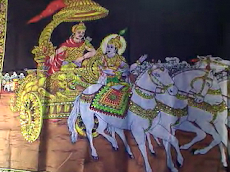GENERAL ENGLISH 1
1. GRAMMAR
A.
Select the answer that best complete the sentence and circle it.
Muralitharan is one
of ……………………… cricketers in the world.
The most best
(b) better (c) the best
I don’t have ………………
money, but I’ll lend you some to buy your lunch.
Many
(b) much (c) any
I will wish not be
able watch many television programs.……………….. I finish my
exams.
Since
(b) until (c) because
The teacher spoke
………………… to the students.
Kindly
(b) kind (c) kindest
The librarian showed
me the section ………………… the English novels are kept.
Where
(b) which (c) that
People who
suffer……………………. Fever should seek medical advice
without delay.
Of
(b) from (c) with
The zonal director
…………………. As the chief guest at our school sports meet.
Has invited
(b) been invited (c) was invited
Everybody in my
family enjoys eating ……………………..food.
Spice
(b) spicy (c) spices
If the doctor had
diagnosed the illness earlier, he …………………. The
patient.
Had saved
(b) could have saved (c) will have save
(10) …………………………
it was raining hard t decided to go to school.
Despite
(b) although (c) when
B.
fill in the
blanks with appropriate words. Use only one word for each blank.
All of us
communicate non-verbally as well as verbally. if irritated we may
tense(1)……………………..bodies,
press our lips together,(2)………………….
gesture with our eyebrows. With(3)………………gaze,
a glance or stare(4)……...........can
communicate intimacy, submission(5) …………………….
dominance. Most of us are good (6)…………………..
Reading non-verbal cues to understand
(7)…………………..emotions in an old
silent film. We (8)……………………
especially good at detecting non –verbal threats. (9)
………………. A crowd of faces, a
single angry face(10) ……………………”pop
out” faster than a
single happy one.
2.
READING COMPREHENSION
Read
the followings passage and answer the questions given below. Yours
answers should be in complete sentences.
The majority
of out-of-school children are likely to be working. The international
labor organization (ILO)
estimates that there are 250 million
children who are working full time or part time in the developing
world. Work prevents many children from gaining or benefiting from
education. However it is also the case that education systems fail to
take into account the special circumstances of working children. Most
working children want to go school. To attract out- of school
children into school, education must be structured to fit the
specific needs of working children.it must also take into account the
needs of their families and communities. Agricultural and domestic
labor must be addressed in particular because they impact
disproportionately on girls.
To transform
education from being part of the child labor problem into a key part
of the solution will require many changes. It will involve upgrading
teacher education and school materials. It will also mean introducing
greater flexibility into education management and teaching methods.
Civil society will also have to be involved, especially children. For
example in Escola Nueva in Colombia, children are participating in
planning their own school activities. Children’s councils are
commonly held as part of education for citizenship.
UNICEF
is co-operating with governments on a number of approaches to meet
the educational needs of working children. Scholarship programs in
Brazil have provided education grants to the poorest families. Such
economic incentives help to reduce the dropout rate. For example, the
balsa carina cicada, is a federal government programmer designed for
regions of the country where child labor is prevalent.it gives grants
to families and to municipal education secretariats. The funds are
used to expand sports. Cultural activities and school tutoring when
child workers are in school. Working children in the federal district
are targeted by another program, the balsa – Escola Program. This
program provides the equivalent of a minimum was (about $100
a month) to their families. This subsidy is lost when their
children’s attendance falls below 90 percent during the school
year. Linked with efforts to improve the quality of primary education
the program has reduced dropout rates.
What is
the passage about? Do not use more than six words for your answer.
………………………………………………………………………………………………………………………..
According
to paragraph 1
How
many children are currently working?
……………………………………………………………………………………………………………
Where
are they from?
…………………………………………………………………………………………………………….
What
are the two major reasons why children cannot obtain education?
………………………………………………………………………………………………………………….
According
to the passage what factors need to be taken in to account when
providing education to working children?
…………………………………………………………………………………………………………………………………………
(a)
State whether the following statement is true or false.
“Girls
are more affected by domestic and agricultural labor.”
………………………………………………………………………………………………………………………………………...
Support
your answer with a statement from the passage.
……………………………………………………………………………………………………………………………………..
List
all the areas in which changes can be made to meet the educational
needs of working children.
……………………………………………………………………………………………………………………………………….
(a)
What is the organization that is mentioned in paragraph 3?
……………………………………………………………………………………………………………………………………
Why is
it mentioned?
…………………………………………………………………………………………………………………………………..
Fill in
the box below with information about programs in brazil that help
working children
| Name of program |
Type of aid
|
Given to
|
| Balsa crania cicada |
|
Families and municipal education secretariats
|
|
Subsidy
|
|
Circle
the word that closest in meaning to the word given on the left.
Specific
- detailed, particular, typical,
unambiguous
Transform
- convert, confirm, renovate,
Transfer
Incentive
- inducement, incisive, reason,
insensitive
Prevalent
- common, necessary, customary, rare
Expand
- exhort, expend, develop,
exclude
Give a
title for this passage
…………………………………………………………………………………………………………………..
4.
WRITING FOR FORMAL PURPOSES
Either
Write an
official letter to the personnel director of a company to inquire
about a job that has been advertised for school leavers. In your
letter you should
State
where you saw the advertisement.
State
why you are interested in this job
Ask for
more details about the job
Or
As
president of the school computer society write an official letter to
a computer company inquiring about their products. You have heard
that they offer special discounts to schools. In your letter you
should
State
how you heard about this company.
State
why you are interested in purchasing a computer from them.
Ask
for any other relevant details
GENERAL ENGLISH – 2
VOCABULARY
Read
the items given below. Find the answer which gives the closest
meaning of the underline phrase or word and circle it.
This
is getting
on my nerves.
It is so loud that I cannot study.
Making
me nervous (c) making me sad
making
me angry (d) making me anxious
The
wedding was a bitter
sweet occasion
for the pererahs. Their only child got married and left for England
with her husband.
A
sad and joyful occasion
More
a sad occasion that was neither sad nor happy
More
a happy occasion than a sad one
An
occasion that was neither sad nor happy
The
board of directors decided to look for new
blood
because they found it
Difficult to change
the attitude of the current employees.
Young
recruits (c) qualified recruits
Fresh
recruits (d) experienced recruits
4.
Despite all the problems that came his way he managed to
keep a cool
(a)
To be careful (c) To remain calm
(b)
To keep himself cool (d) To be tolerant
5. The
project manager is
an old hand.
He knows all the procedures.
(a)
Is an experienced person (c) Is a known person
(b)
Is a qualified person (d) Is an old person
6.
“Why is she in two minds? She can definitely enter the university.”
“I think she wants to find a job.”
(a)
She wants to do both. (c) She is undecided
(b)
She cannot think properly (d) she has made the wrong Decision
7.
The junior team will get into hot water. They did not come for
cricket practices this afternoon.
(a)
Will be punished (c) will be late
(b)
Will get into a fight (d) will get into trouble
8.
At the Inter – school drama competition I met my childhood friends
Sunila. I got so carried away that I nearly forgot to go in for the
first play.
(a)
Walked away with Sunila
(b)
Lost my way and couldn’t participate in the drama
(c)
Ran away when I saw Sunila
(d)
I did not pay attention to the time and went on talking to Sunila.
9. In modern society
one of the most efficient ways of persuading customers to buy
something is to advertise in the electronic media.
(a)
Profitable (b) effective (c) satisfactory
(d) practical
10. The data
provided by the department of demography on infant mortality is
reliable.
(a)
Accurate (b) consistent (c) trustworthy
(d) honest
11.
I have been studying physics for over two years and I am now sick of
it.
(a)
I fell ill after studying physics (c) I am bored
(b)
I dislike physics (d) I felt
tired
12.
If the cost of living comes down everybody will benefit.
(a)
Approve (b) gain (c) respond
(d) applaud
13.
After a long and fruitful life dedicated to serving god, mother
Theresa passed away.
(a)
A happy life (c) A busy life (b) A comfortable life
(d) A rewarding life
14. I have to
attend so many tuition classes that I have little time for sports.
(a)
Some time (b) no time (c) a little time
(d) a lot of time
15.
Sarath enrolled for a course in computers to upgrade his skills as
she intended to go abroad soon.
(a)
Improve (b) assess (c) promote
(d)advance
DIALOGUE
Imagine
that you have finished you’re A/L
exam and want to follow a computer course. Complete the telephone
conversation that you would have to make to find out more details
about the course.
A:
(1) ……………………………………………………………………………………………………
B:
Good morning to you too. Yes, this is the new world computer
academy,
How
Can I help you?
A:
(2) ………………………………………………………………………………………………………….
B:
Yes, we have computer courses for school leavers.
A:
(3) ……………………………………………………………………………………………………………..
B:
The duration of the computer course is one year.
A:
(4) ………………………………………………………………………………………………………………
B:
The course will cost about five thousand seven hundred rupees.
A:
(5) ………………………………………………………………………………………………………………
B:
No, I am sorry, but you have to pay the full amount when you
register for the
Course.
A:
(6) ………………………………………………………………………………………………………………
B:
Yes, we have branches outside Colombo as well. You can also do
the same
Course
in Kandy, Negombo or Kegalle.
A:
(7) ………………………………………………………………………………………………………………
B:
We will be starting the course for the new batch of students in
September. If
You
come on the 30th
of September you can register and attend the first
Class.
A:
(8) ………………………………………………………………………………………………………………
B:
Yes, you must have at least a pass in Mathematics and English at
the GCE
O’
Level
Examination to register for the course.
A:
(9) ………………………………………………………………………………………………………………
B:
No, we don’t have classes during the weekends for the school
leavers’ course
All
the classes will be on weekdays, from nine thirty to four thirty.
B:
Thank you for calling our academy. Is there anything else you
would like To
Know?
A:
(10) ………………………………………………………………………………………………………………
COMPOSITION
Answer
both sections A
and B.
Either
Write
a speech welcoming the National Basketball Champions who are
currently visiting your school to play a match.
In
your speech you should
Welcome
the team.
Say
something about the team.
Wish
them an enjoyable game.
Or
Your school has
invited a guest speaker as part of the activities for your school’s
“Environmental Awareness Week”. Write the vote of thanks you
would give as the Head Prefect.
In your speech you
should
Thank
the speaker and the principal.
Say
how useful the speech was.
Say
something about the environmental activities in the school
.………………………………………………………………………………………………………………..
…………………………………………………………………………………………………………………
Choose
one of the following newspaper headlines and write a news story (in
about 150 words) to match it.
.……………………………………………………………………………………………………………….
…………………………………………………………………………………………………………………









